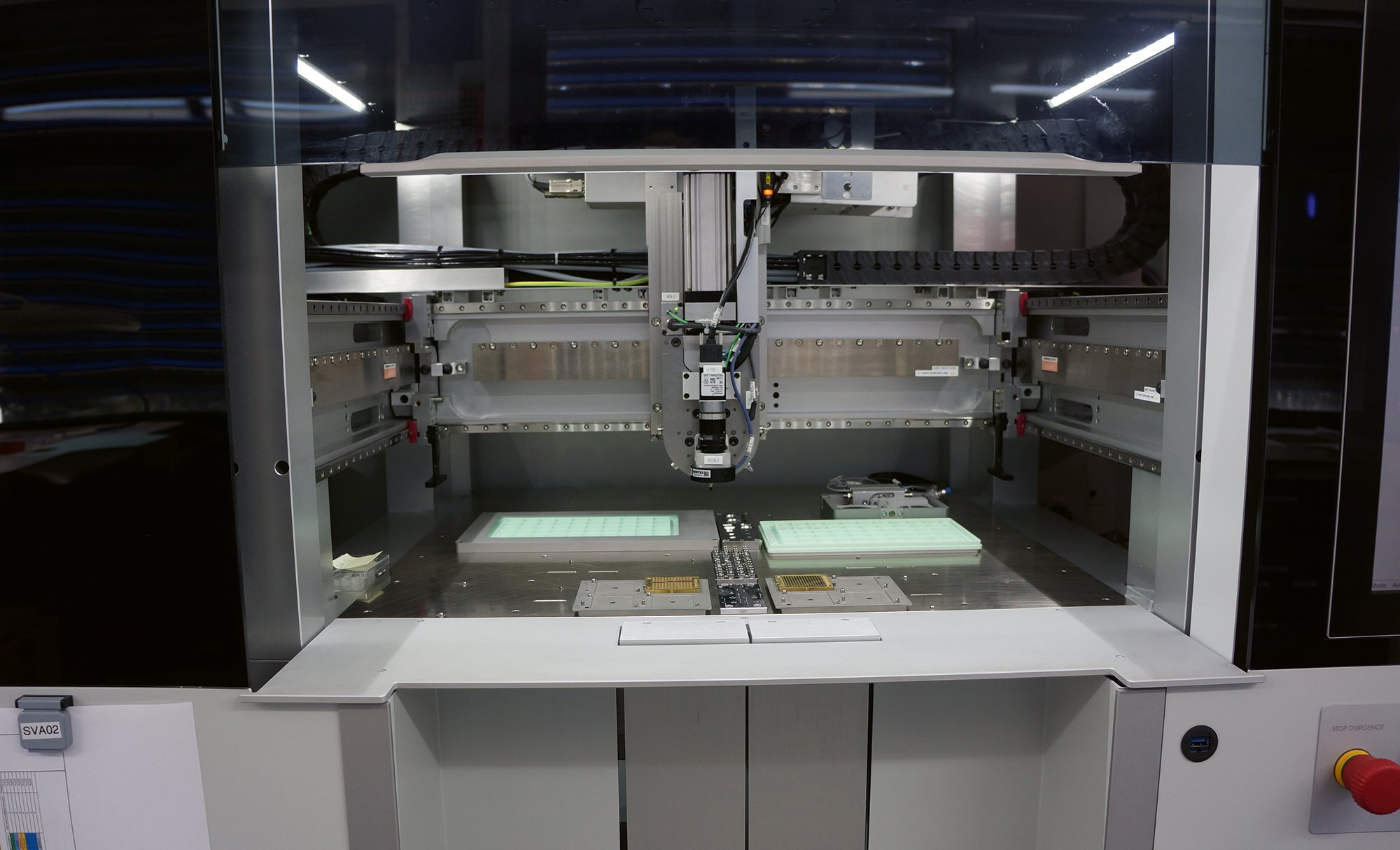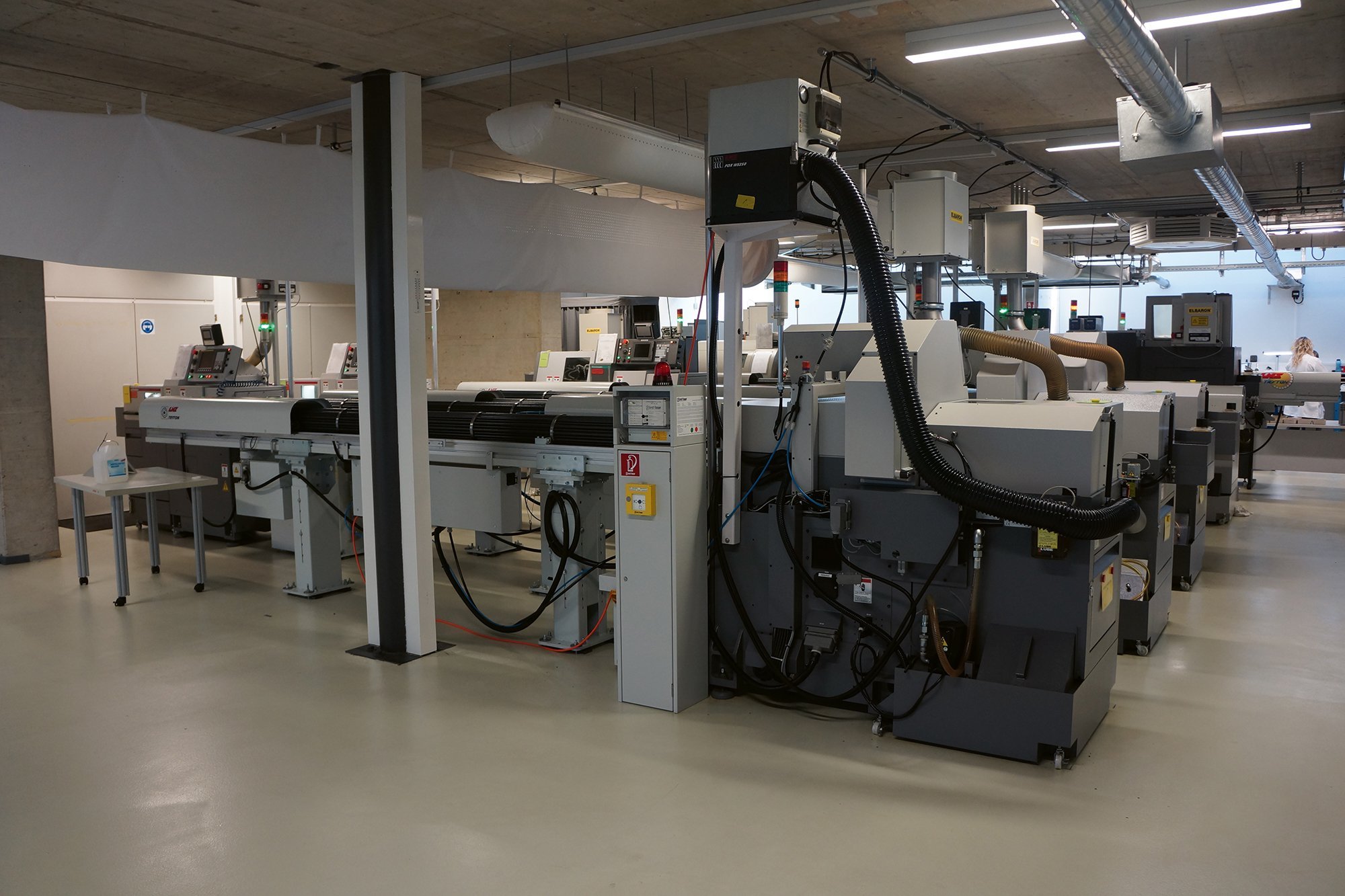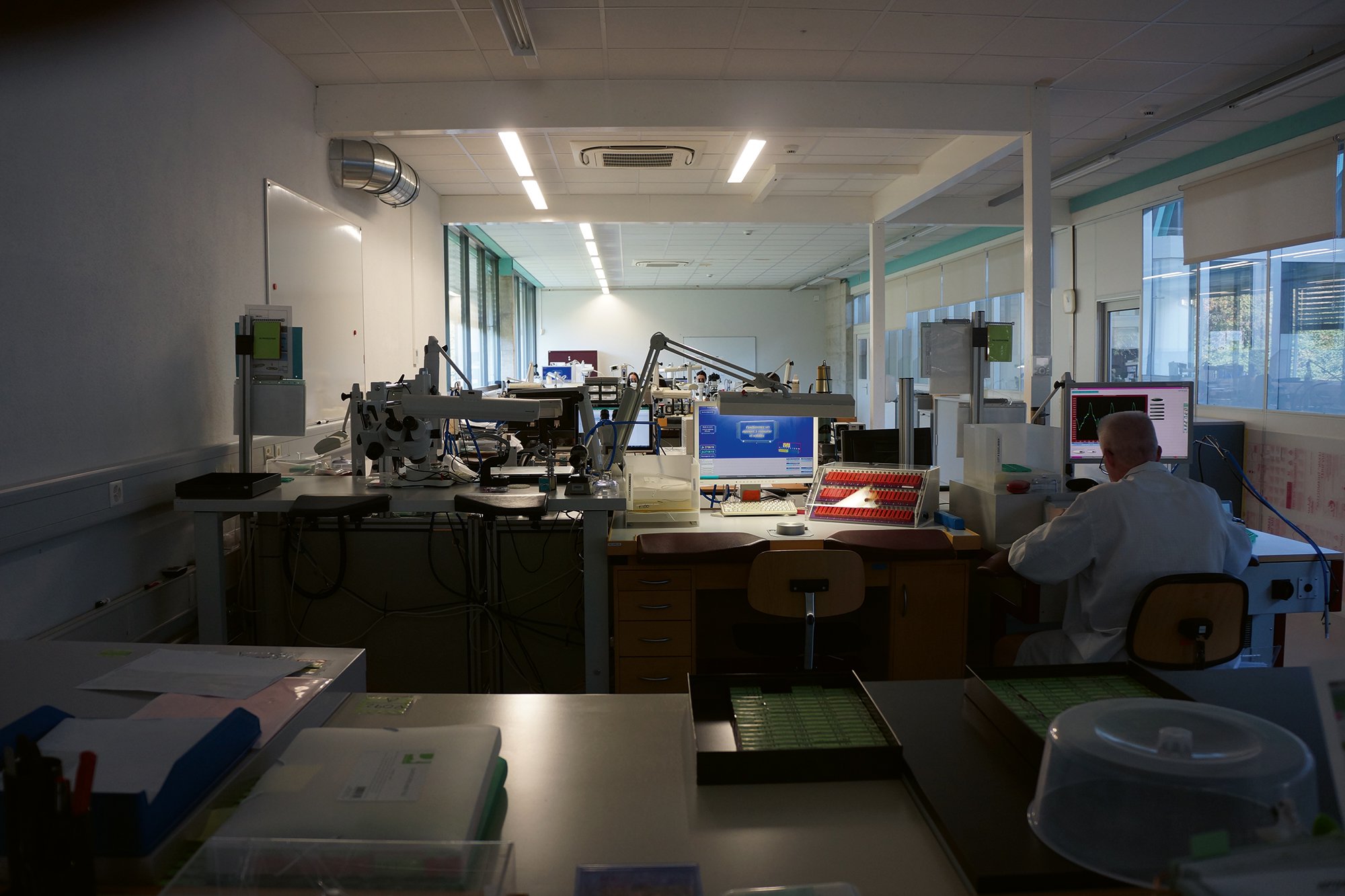hen Miguel Rodriguez, boss and owner of the Festina Group (L. Leroy, Perrelet, Jaguar, Candino, Festina, Lotus), bought Soprod from the Hong Kong-based Peace Mark in 2008, this wasn’t the first time the company had changed hands.
Soprod SA Les Reussilles was set up in 1966 when seven small établisseurs in Tramelan, in the Bernese Jura, joined forces to produce mechanical movement components on an industrial scale. Now manufacturing and assembling movements for third parties including ETA, in 2005 Soprod was taken over by Léman Capital and merged with SFT, a maker of entry-level quartz calibres, to form STM Holding. In 2007 the holding company was sold to the Hong Kong-based Peace Mark group. Shortly after, the group suffered financial meltdown and Soprod changed hands again, selling to Miquel Rodriguez in 2008.
-

- Excerpt from Europa Star, 1966.
Rodriguez wanted to guarantee an independent supply of mechanical movements for Festina Group brands (after Swatch Group’s announcement that it would be cutting back deliveries). A second objective was to provide third parties with an alternative source of entry-level and mid-range Swiss mechanical movements.
Seven integrated sites
Fifteen years after the takeover, Soprod is a name to be reckoned with. It employs a 300-strong workforce across six production sites in Switzerland and one in France, in Maîche (another Festina Group company, France Ebauches, is also based there. Read more about it in this issue). Annual production of mechanical movements is estimated at 150,000 to 200,000 units (the group doesn’t publish figures). Of these, 20% are earmarked for certain Festina Group brands, mainly Perrelet, Candino and Jaguar. The remaining 80% are sold to around 40 third-party clients, including Dior (Grand Bal line), Ball Watches, Cuervo y Sobrinos and Paul Picot.
The head office, still in Les Reussilles (Tramelan), houses product development, laboratories, quality control, logistics, and T0 and T1 assembly (watch production is divided into stages from T0 to T4).
Jewels and pins are fitted using ultra-modern machines for speed and precision. Much of the assembly, from kits, takes place on a Lecureux semi-automated production line. Components are assembled, screws automatically tightened, lubricant applied, tolerances checked, functions controlled and the movement set in motion.
Balance wheels, balance springs and escapements are manufactured at MSE in nearby Muriaux (Saignelégier). This unit guarantees an independent supply of these strategic components. Escape wheels, escape wheel pinions, pallet levers, balance wheels, balance staffs, collets, double rollers, pallet forks as well as the mainspring barrel are produced on nine automatic lathes.
All except one of the 24 Soprod calibres are fitted with in-house regulating organs (the exception being the P24, priced at CHF 80. For comparison, Newton movements start at CHF 130). Balance springs begin life as three-kilo blocks of metal alloy (an 800g bar will produce in the region of 50,000 balance springs).
The resulting 0.6mm diameter wire is sent over the border to Maîche where it is drawn and rolled. First, the wire is drawn through a succession of dies to reach a diameter of 70 microns or 0.07mm. This round wire is then rolled or flattened into a rectangular strip, 0.03mm thick by 0.12mm wide. The wire then goes back to MSE to be made into balance springs. The entire process breaks down into 150 separate stages, including cutting to length, coiling, heat treatment, shaping the terminal curve, adjusting and pinning the collet. Many of these operations are performed manually: each balance spring spends six to seven minutes in a specialist’s hands.
Once the balance wheel and spring have been assembled, inspected, poised and centred, the final operations are carried out. This includes polishing the pivots, preparing the balance rim, surface finishing, attaching the guard pin, fitting the pallet staff, placing the pallet stones, etc. In total, there are 35 separate operations for the balance wheel and six for the pallet lever.
Soprod’s micro-turning site is just five minutes away, in Saignelégier. After the quiet of a balance spring suspended from the tip of tweezers, the noise comes as a surprise. Ninety vintage Tornos lathes produce every movement component – pinions, pallet staffs, microscopic screws, wheel axles, centre pipes, pins, posts, screw shanks, cannon pinions and more – with a tolerance of two to three microns.
Asked about the relative worth of these indestructible vintage cam lathes compared with today’s CNC machines, the workshop manager (despite a background in CNC) comes down on the side of the Tornos. While CNC machines have the edge for complex geometries, the reliability, precision, simplicity and repairability of mechanical lathes offer multiple advantages.
-

- The Soprod M100, based on the Soprod A10, is an automatic movement measuring 25.60mm x 3.6mm with a 42-hour power reserve, beating at 28,800 vph (4 Hz). Incabloc. Hours, minutes, central second hand, date. Various versions are available, including the skeleton version pictured here.
In the next-door workshop, teeth are cut in wheels and pinions, and axles, pivots and contact surfaces are burnished to minimise roughness and prevent friction. Micro-turned components are heat treated to harden or relieve stress, polished, washed, tumbled and subjected to various other finishing processes. Standing in front of bottles filled with mysterious powders, the workshop’s “wizard” tells us there are 130 different formulas, each adapted to the specific alloy and the shape of the part.
Soprod also operates a workshop in Le Sentier, in Vallée de Joux, that manufactures bridges and mainplates for small and medium production runs, in addition to a large unit in Sion that makes quartz and smartwatch movements (another story), and performs blanking and production of components, such as levers, that are used for setting and adjusting.
Lastly, a factory in Herbetswil, in German-speaking Switzerland, assembles mechanical watches for Festina Group brands.
The Newton calibre
All of the above confirms that Soprod is a highly integrated movement manufacturer. This independence from sub- or co-contracting, with the attendant problems of wait times, reactivity, flexibility, continuity and delivery guarantees, is the result of Miguel Rodriguez’s strategy to build a perfectly autonomous whole.
Soprod’s latest calibre, the Newton, introduced in 2020, raises the bar and confirms the company’s ambitions. Priced from CHF 130 to CHF 155, it is positioned between two best-sellers by Soprod’s much larger competitors: Sellita’s SW200 and ETA’s 2892.
Prior to the Newton, the star of Soprod’s catalogue was the M100, an ETA-compatible calibre with multiple variations including large date, second time zone, power-reserve indication, 24-hour display, chronograph, moon phases and skeletonisation.
Reliable, certified and competitively priced, this automatic movement is Swiss Made but not entirely made in the Jura region (the base CHF 80 price tag goes up to between CHF 145 and CHF 300 depending on the complications).
-

- Newton: Soprod emphasises the reliability of this Swiss mechanical movement, which is designed to compete in the entry-level segment. The Newton is equipped with a double-cone Incabloc® shock absorber, while a cross-through balance bridge provides additional protection for the balance wheel. It has been tested and certified Chronofiable® by Laboratoire Dubois.
The Newton goes a step further. Made entirely in the Jura – 85% in Switzerland and 15% at the factory in Maîche, France – technical specifications are just one of its selling points. This new calibre is also remarkably modern, with an elegantly simple and symmetrical construction. The large cross-through balance bridge, stretching between 4 and 8 o’clock, lends itself to all manner of decoration and finishing. It also puts the balance wheel, visible from all angles, on full show. The overall aesthetic breaks with traditional movement architecture. The result is contemporary and visually powerful.
Measuring 11½’’’ in diameter and 4.6mm high, the Newton is automatically wound, delivers 44 hours of power reserve and runs at 28,800 vibrations/hour (4 Hz). Proposed in date and no-date executions, it is priced from CHF 130 up to CHF 200 (with COSC certification). When the Newton launched, Miguel Rodriguez was clear about his objective: meet the requirements of a 100% Swiss Made calibre and bring real added value to the entry-level movement segment while offering a contemporary design.
Has Soprod done what it set out to achieve? Launched at the outbreak of the Covid pandemic, the Newton is hitting its stride. The combination of quality, architecture and price has already found takers – no doubt with many more to come.













































